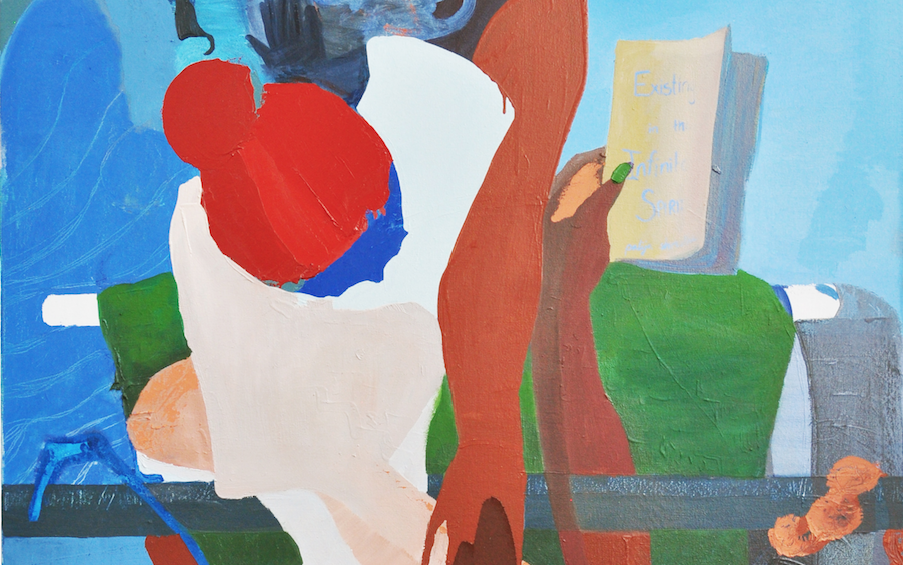
Palija Shrestha’s practice is a world in an of itself. A world that presents as a portal between the past and present while negotiating the nuances of being and becoming. This September, I was fortunate enough to see Shrestha’s studio in person wherein which I was able to experience the scale of these large form oil paintings. Anchored across the studio, Shrestha’s paintings serve as markers of time and deep inquiry beckoning the viewer to peer deeper and take notice of this keen visual language. Guilded by revalation and ancestral surrations, Shrestha builds her own meanings of Newari womxnhood and maternal veneration.
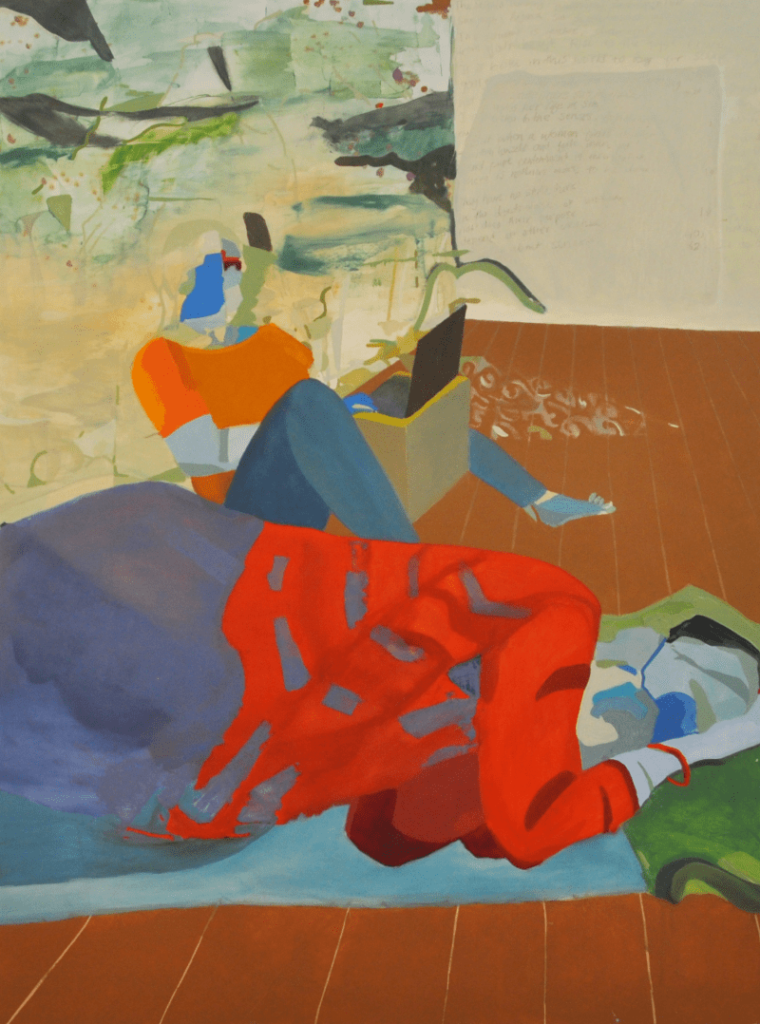
Chanell Stone (Exhibitions Fellow):With your work you mention this idea of dealing with memory, ancestral connectivity, and uncovering ancestral knowledge. Can you elaborate on that?
Palija Shrestha (Studio Artist): After the passing of my grandmom and people that are very close to me spirit wise I feel like my ancestors are guiding me toward becoming the person I’m meant to be rather than the person I was schooled to be. In Nepal as a female, your role in your life is to be a good wife and have babies and never actually acknowledged. Coming [to the United States] I was put into this box: Are you a person of color, are you Asian, do you make work about mountains? It was really weird for me to have to answer those questions.
CS: Did you come to the United States as an adult?
PS: I came to the states at 19 years old.
CS: How was your work affected by coming to the states as an adult and being asked so many identity-based questions? Do you think this has subconsciously affected your work?
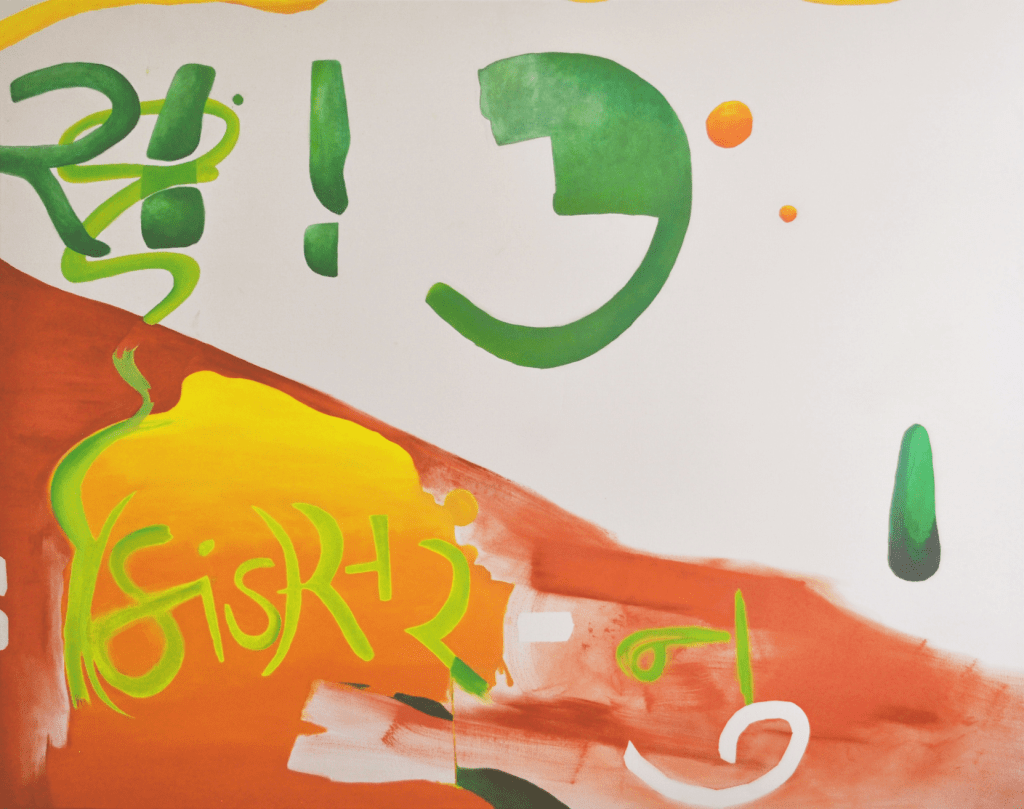
PS: Every phase of life and everything you come across does have an impact and effect on you — so, yes. When I was back home [in Nepal] I was focused on gender and I didn’t want to be put into this box of gender. Coming here, these new questions made me navigate that space of who I am as a person and as a Newari person and what does that mean? I know how to speak Newari and understand it but I do not know how to read it. Now I’m thinking about what it means to make my own meanings of who I am. So I think those were impactful questions that I needed that I actually needed to understand and needed to answer and I’m still questioning these things now.
CS: Can you explain how you’re using the script in the artwork featured in Uncovering an Existence?
PS: I use three scripts: Ranjana Lipi which is the Newari script that I’m learning, and the Nepalese script Devanagari which I’ve done schooling in, and English. I’m creating a continuation of these three scripts and what it can translate into because each word does not translate into English. I’m also thinking about interactions that I’ve had in Nepali that I cannot transcribe into English because its so complicated based on the cultures and norms relating to it. I’m not making a new language but rather new meanings.
CS: With the use of this language, are you using specific words or just specific lettering?
PS: It’s both — I start with the words and as I layer them some of the lettering comes out more and others get buried in the paint. So I’m playing with that and it becomes a secret. Almost like a secret painting.
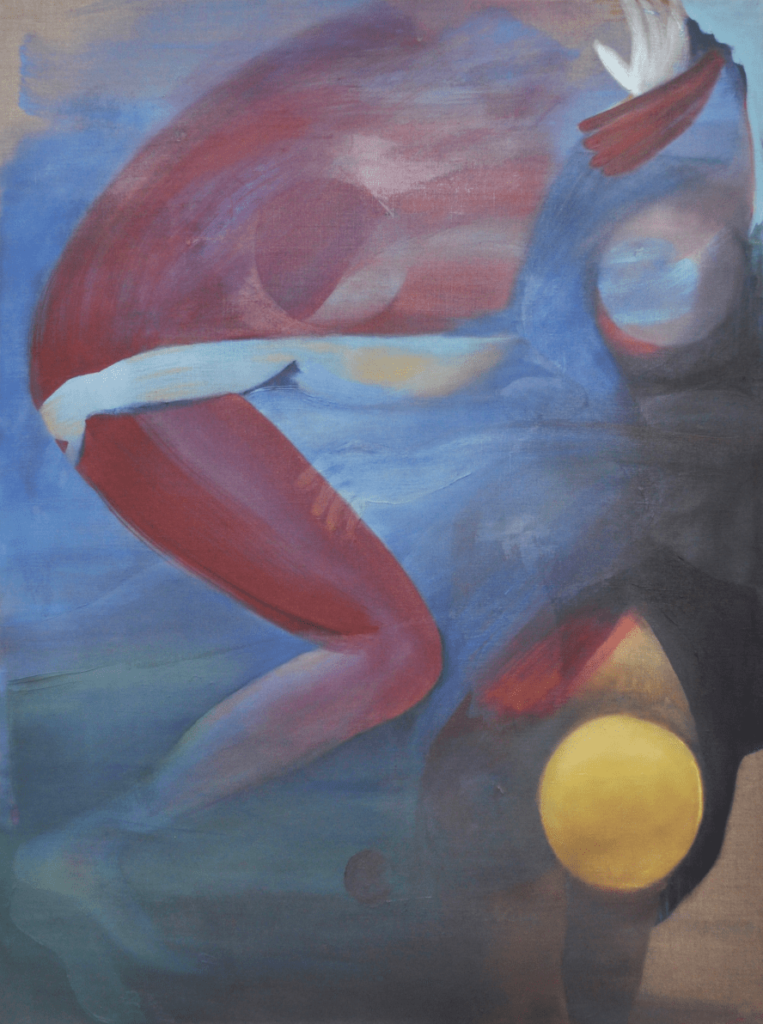
CS: Can you tell me about your style of mixing different scenes together to create these blended forms? What does that mean for you and what led you to that?
PS: As a person, I’m a very anxious person. When I’m starting a painting or planning a painting I know for sure this is what I’m painting about. But as I start painting and evaluate the painting and learn more about the memory itself. That’s what leads me to layer more onto the painting. It’s also because I take years to finish my paintings. During the first part of the painting my thinking is something and my perspective is something and then in those few months I have more revelations and insights. I become more immersed in the thinking than what I was thinking about a year ago.
CS: Can you explain your process, decision making between painting on panel or linen and your use of powdered stone?
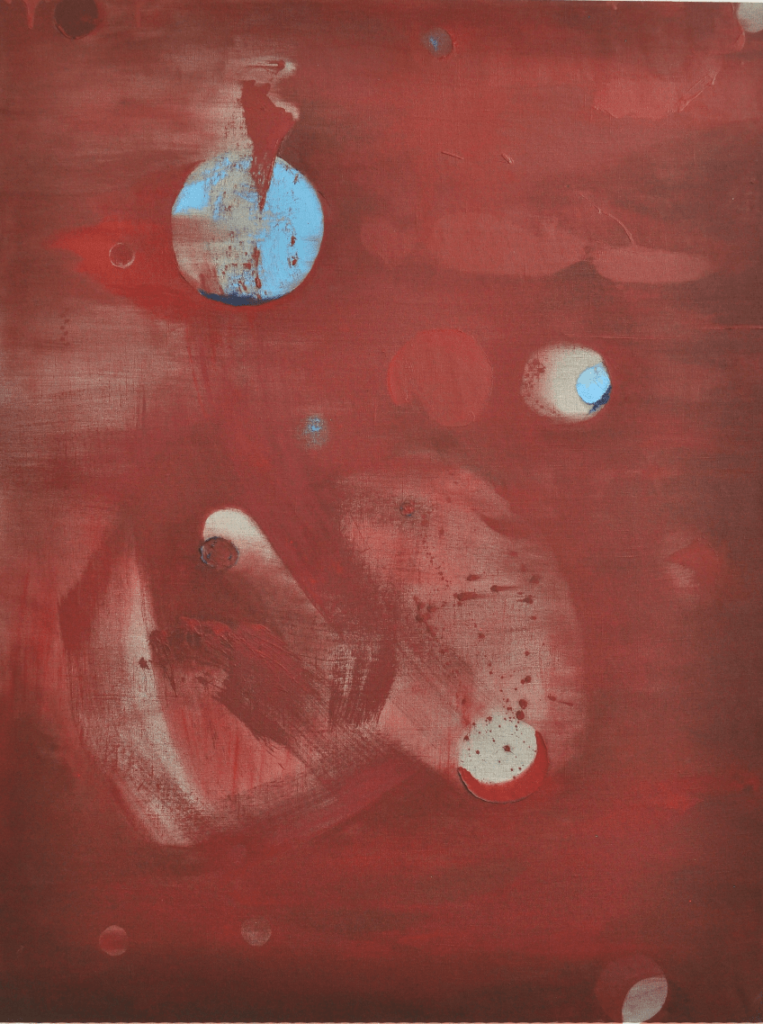
PS: All of these paintings are me trying to understand the structure of things and where I am at. Because of that, it is almost therapeutic for me. The start of the painting includes layers of gesso and sanding the painting down and that in itself is meditative to me. I’m also thinking about the duration of time I’m going to be in a place and how I will be able to carry and pack my work along with me. Historically, making these cultural paintings were always done or muslin or linen and I’m more attuned to the traditional Newari paintings. I’m also thinking about the history of linen itself and how I’m altering the linen and only covering 50% of linen allowing it to show through. The powdered stone is something that I physically prepare and it is very physical. So in that way it is also very meditative and I feel connected with my ancestors. The stone is then added to the paint. I have also recently started using turmeric in my paintings as well.
CS: What is the specificity placed on your maternal lineage?
PS: Being from the Nepalese society and community, I’ve been very aware of how I’ve been treated as a woman, how my mother has been treated, my grandmothers and all female identified people. It’s very discriminatory and very unjust even today. From that point of view of maternal it was not acknowledged.
CS: Would you say your artwork is an acknowledgment of the womxn in your family?
PS: Yes 100% and also an acknowledgment of myself.
Palija Shrestha solo exhibition Uncovering an Existence is on view online via the Frank-Ratchye Studio Artist Project Space at Root Division.org from September 11th to October 13th from 7-10pm.
